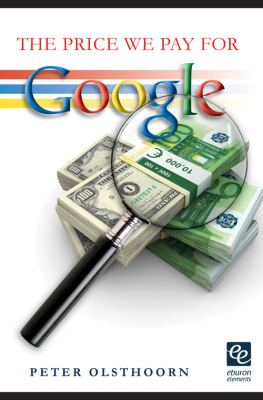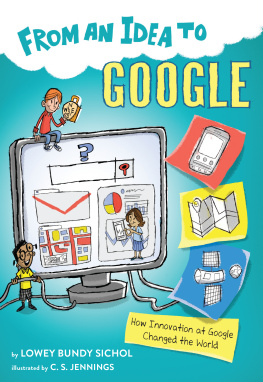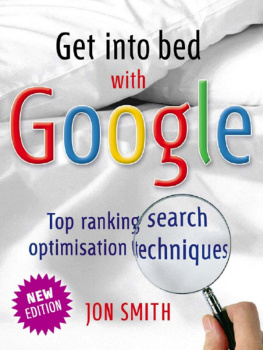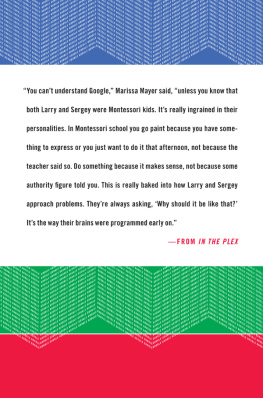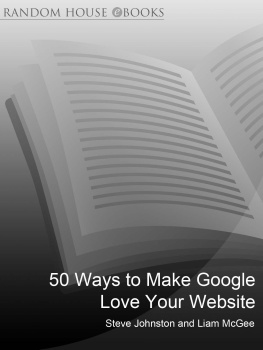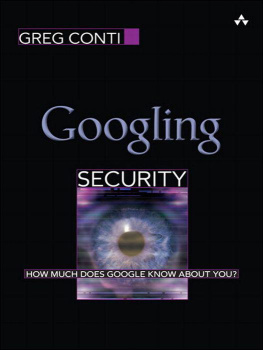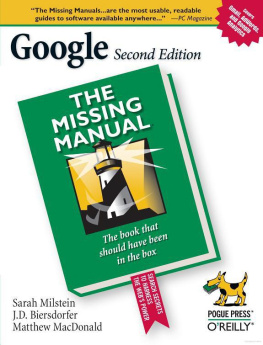The Price We Pay for Google
Peter Olshoorn

ISBN 978-90-5972-582-9
Published by Eburon Elements
facebook.com/eburonelements
Cover design: Claudia Mesquita
2011 PETER OLSTHOORN. All rights reserved.
1. Introduction
The Whole World for Free
Everything on the internet is free. Google is free, YouTube is free, and Gmail is free. The whole world for free, for nothing, and we pay merely for connections to all of those splendid destinations on computers far away. Right?
Well, why not try installing Google Alarm on your Firefox browser. Courtesy of the Austrian artistic group Free Art & Technology the vuvuzela will sound every time Google collects your browsing data. The more expressly Google operates, the louder the vuvuzela blasts. The number of sites that Google spies on is totted up: easily 80 percent of all websites visited, not to mention the mountains of data Google collects when storing all of our searches and every link that we click.
The following report was also circulated in newspapers: Google pays its gay and lesbian employees an extra thousand dollars annually to compensate for their tax disadvantage. After all, Google considers itself to be an exceptionally kind-hearted corporation, gladly advertises this, and is frequently justified in promoting such an image.
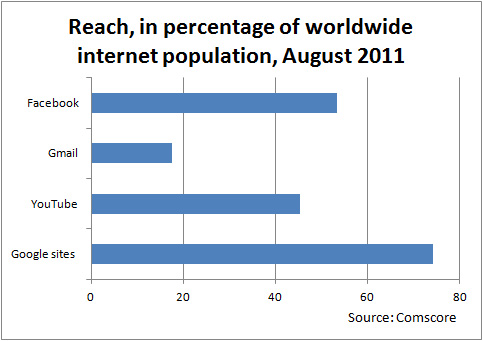
Google is a household name and the verb to google even more so. Around two-thirds of the 200 billion searches worldwide per month pass through Google. Google websites reach 1 billion of the 1.4 billion internet users (Comscore), or three-quarters of the 2 billion users worldwide (Internet Statistics). These figures are far higher than those for Microsoft, Yahoo! and Facebook, although user time on Facebook is higher than for Google sites. []
Google rakes in more money from advertising than many a sizeable broadcasting company. That is too much to spend merely on improving the search engine, which has left Google free to invest to its hearts content in new services such as YouTube, which has become the most popular TV channel in the world. Whether actively or passively, virtually all internet users are frequently exposed to Gmail, as well as Google Earth and Maps.
Benevolent Superpower
Google is, without a doubt, the best internet company we know; the most used, the most celebrated. The height of this idolization was reached with the book What Would Google Do?, in which Jeff Jarvis holds up Google as an example to the most diverse array of enterprises, from the imaginary Google Bank to Google Hospital, a health service run the Google way.
There is no point in attempting to imitate Googles position, in spite of the better world advocated by Jarvis, which involves the consistent application of the Google method. Moreover, this is Googles vision: to make the world a better place under its much-discussed slogan, Dont Be Evil. Google hereby branded itself as a kind of Mother Teresa of the business world, a rarity amongst malevolent companies that are out to make a buck from us. This is the Google that unlocks all of the worlds information for us, that will soon imbue the poor in Asia and Africa with knowledge, and even helps to solve the CO2 problem with investments in new energy.
And yes, Google has made our world a better place. Easy access to information has saved lives and improved the lives of many, whilst offering us all a phenomenal gateway to a great deal of the worlds information. Without Google, this information could not have been accessed so quickly, if even at all. This is the general impression, at least. Google certainly saves us a lot of time, but are we receiving the best information? That, we do not know.
It goes without saying that Google is charming. There are all of its modernizations, gifts to us and activities that yield the company either little or no money, such as Google Maps, Earth, YouTube, Gmail and Picasa. The technology is first-rate and it is often enjoyable to use.
Google began playfully in a university study, where the cream of the academic world and technical experts preferably academic technicians were brought together. Now, over 20,000 employees work as part of an insurmountably growing hierarchy that did not feature in the original intentions. The more powerful Google seems to become, the more its direction is determined by a market intent on curbing its power. On the other hand, users and media outlets expect Google to remain sweet and good, while those issuing rules and politicians are exploring all means by which this superpower can be contained.
Unlike Jarvis, a man celebrated even as a prophet, I view Google in rather a more sober light. I find Google brilliant, and my admiration has been there right from the very start, when I interviewed Sergey Brin. However, having followed Google intensively I have written over a thousand articles on the subject and as perhaps one of the most intensive users since 1998, I have also been able to experience and witness many other aspects to Google.
Broadening or Narrowing?
We are making ourselves immensely dependent on that one portal to all of the worlds information. In more simple terms, what we learn and what we are able to find out is becoming increasingly determined by that single American company. We generally look no further than the uppermost search results, which are now even personalized (in Google-speak), as Google presumes to know how we differ as individuals in our need for information. After centuries of broadening learning, knowledge and access to information, which culminated in the phenomenal ocean of the internet, and after a century of fighting for educational freedom and educational rights, we are now narrowing our gateway to that information and knowledge, namely to the first page of Googles search results. And whats more, were quite happy about it.
An exaggeration, but fundamentally true. Or must we name specific examples: writing dissertations, looking up recipes, choosing photos and videos, images of our local environment? Yet no raised finger appears to warn us against Googles imminent transformation into the fictional Big Brother of 1984, in which a world dictatorship is foretold. Neither is Google the subject of cynical decrees about universal evil. This book is nevertheless intended as an impetus to reflect on the dependency that we are creating and the price we pay in financing and strengthening this commercial service.
We are under no obligation to use search engines, and this includes Google. We can surf the internet independently or use alternative search engines. Yet by typing search commands into Google, clicking on results and using other services, we are continually making this advertising machine stronger and more powerful, while filling its owners pockets. This upward spiral is made possible by the users, who find results in no time and apparently pay nothing in return.
With Great Power Comes Great Responsibility
With my Dutch book De macht van Google, which is partly translated here, I demonstrate how Googles power came about. How did Google become so entangled in its own principles, including those of self-professed integrity and great relish in technological innovation? My belief is that we have granted Google great power, which the company naturally wishes to not only deepen, but above all, broaden.

